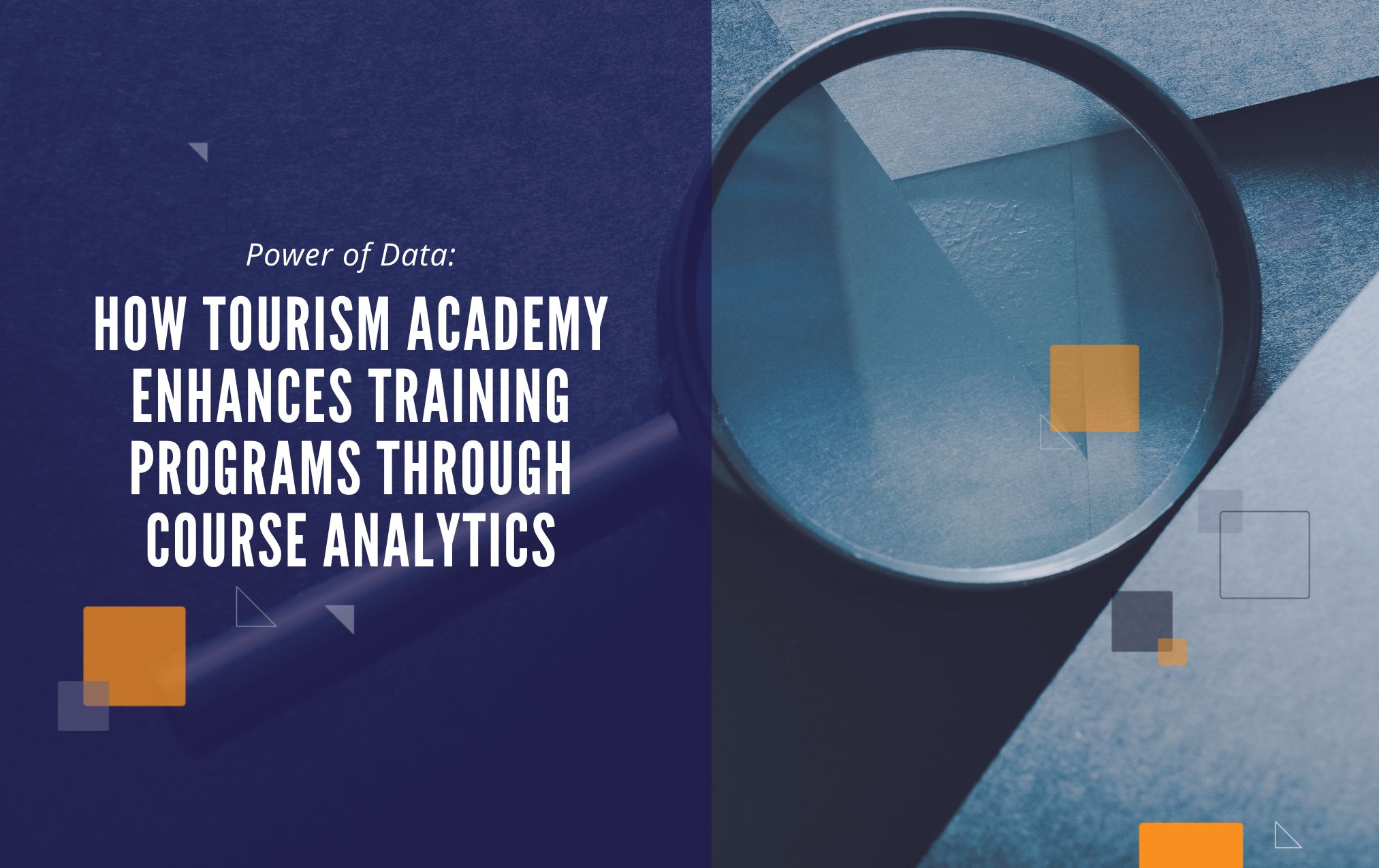
Power of Data: How Tourism Academy Enhances Training Programs Through Course Analytics
In the tourism industry, staying ahead requires continuous adaptation and innovation. At Tourism Academy, we recognize the paramount importance of understanding the intricacies of our training programs. We embrace a data-driven approach, leveraging comprehensive course analytics to not only gauge performance but also to enhance the quality and efficacy of our training initiatives.
Why Course Analytics Matter
Understanding course analytics is pivotal for several reasons:
-
Insight into Engagement Levels: Course analytics provide valuable insights into how engaged participants are with the material. By tracking metrics such as time spent on each module, frequency of logins, and interaction with course content, we gain a nuanced understanding of participant engagement.
-
Evaluation of Completion Rates: Completion rates offer a snapshot of how effectively participants are progressing through the program. Analyzing completion rates helps us identify potential bottlenecks or areas where participants may be disengaging, allowing us to refine content and delivery methods accordingly.
-
Assessment of Learning Outcomes: Analyzing quiz scores and survey results enables us to evaluate the efficacy of our training programs in achieving their intended learning outcomes. By correlating quiz scores with engagement levels, we can assess the effectiveness of different instructional approaches and adjust our strategies as needed.
-
Identification of Areas for Improvement: Course analytics serve as a diagnostic tool, highlighting areas within the curriculum that may require refinement or additional support. Whether it's revamping content to better address participant needs or enhancing the user experience of the learning platform, data-driven insights guide our continuous improvement efforts.
How Tourism Academy Utilizes Course Analytics
-
Iterative Curriculum Development: We use course analytics to inform the ongoing development of our training curriculum. By analyzing participant feedback, engagement metrics, and learning outcomes, we identify areas where content can be enhanced or updated to better meet the evolving needs of the industry.
-
Personalized Learning Experiences: Understanding individual participant behaviors allows us to personalize the learning experience. By tailoring content recommendations or providing targeted support to participants who may be struggling, we foster a more effective and engaging learning environment.
-
Optimized Delivery Methods: Course analytics help us optimize the delivery methods of our training programs. Whether it's incorporating multimedia elements to enhance engagement or adjusting the pace of instruction to better accommodate diverse learning styles, data-driven insights enable us to fine-tune our approach for maximum effectiveness.
-
Continuous Evaluation and Feedback Loop: We view course analytics as part of a continuous evaluation and feedback loop. By regularly monitoring key metrics and soliciting input from participants and industry experts, we ensure that our training programs remain relevant, impactful, and responsive to emerging trends and challenges.
Conclusion
At Tourism Academy, our commitment to excellence extends beyond the development of cutting-edge training content. By harnessing the power of course analytics, we continuously refine and enhance the quality and efficacy of our programs. Through data-driven insights and a relentless focus on improvement, we empower tourism professionals worldwide to thrive in an ever-evolving industry landscape.


Leave a comment